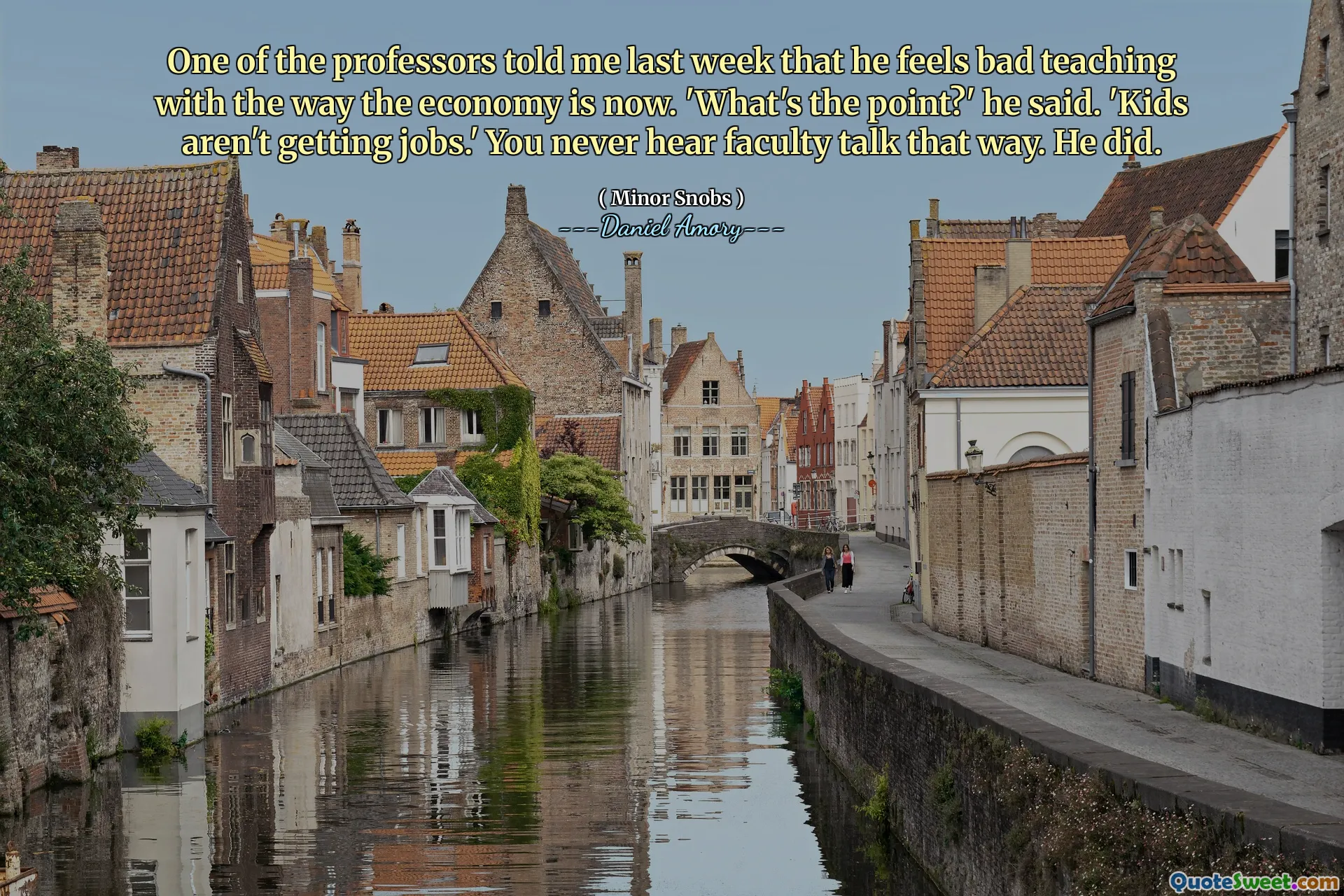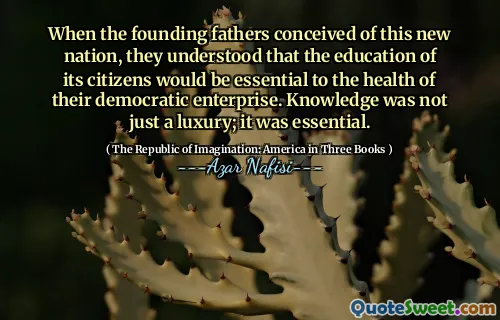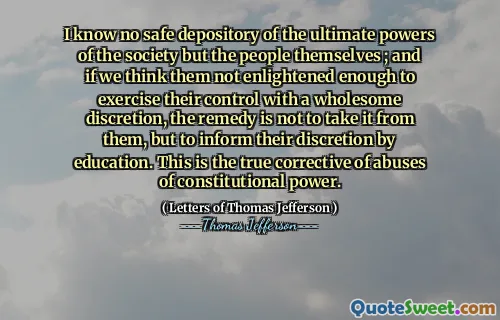
One of the professors told me last week that he feels bad teaching with the way the economy is now. 'What's the point?' he said. 'Kids aren't getting jobs.' You never hear faculty talk that way. He did.
This quote poignantly captures the sense of disillusionment and frustration that many educators and professionals might feel amid economic downturns. Seeing a respected professor openly express despair over the relevance and impact of academic efforts in light of bleak job prospects for students highlights a broader cultural and societal concern. It suggests that even those dedicated to shaping young minds are grappling with a crisis of purpose, a realization that the conventional pathways of employment are faltering or diminishing in value. The professor's candor indicates a loss of confidence in the traditional role of higher education as a pathway to secure employment, which can lead to a broader questioning of the entire educational system's effectiveness in navigating economic challenges. Such honesty from a faculty member is rare, as academia often fosters a culture of resilience and idealism, perhaps shielding administrators and educators from acknowledging harsher realities. This moment of vulnerability reveals a clash between hopes for future generations and the stark economic realities they face. It also prompts reflection on how economic conditions influence social attitudes, motivation, and the perceived purpose of education. The quote invites us to consider whether societal structures support or hinder genuine progress, and whether institutions are responsive enough to address and adapt to these ongoing challenges. Ultimately, it underscores the importance of fostering resilience and innovation in education and career development, especially during difficult economic times, so that hope and purpose can be rekindled even amid adversity.







